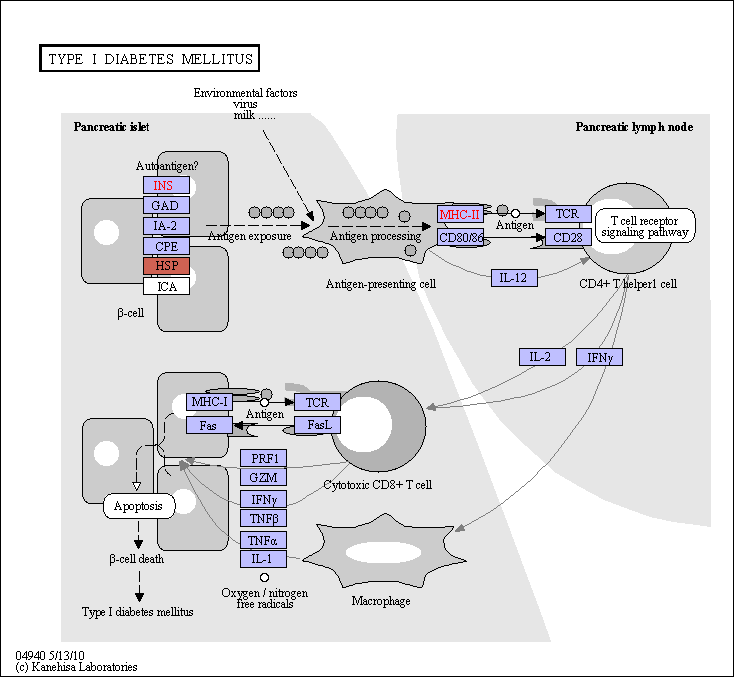Type I diabetes mellitus is a disease that results from autoimmune destruction of the insulin-producing beta-cells. Certain beta-cell proteins act as autoantigens after being processed by antigen-presenting cell (APC), such as macrophages and dendritic cells, and presented in a complex with MHC-II molecules on the surface of the APC. Then immunogenic signals from APC activate CD4+ T cells, predominantly of the Th1 subset. Antigen-activated Th1 cells produce IL-2 and IFNgamma. They activate macrophages and cytotoxic CD8+ T cells, and these effector cells may kill islet beta-cells by one or both of two types of mechanisms: (1) direct interactions of antigen-specific cytotoxic T cells with a beta-cell autoantigen-MHC-I complex on the beta-cell, and (2) non-specific inflammatory mediators, such as free radicals/oxidants and cytokines (IL-1, TNFalpha, TNFbeta, IFNgamma).
Type I diabetes is a polygenic disease. One of the principle determining genetic factors in diabetes incidence is the inheritance of mutant MHC-II alleles. Another plausible candidate gene is the insulin gene. |
 Type I diabetes mellitus - Reference pathway (KO)
Type I diabetes mellitus - Reference pathway (KO)

 Type I diabetes mellitus - Reference pathway (KO)
Type I diabetes mellitus - Reference pathway (KO)

